Meet the Team
GSI Staff and Board Members
We are passionate frontline clinicians, community educators, researchers, scientists and global health professionals bringing decades upon decades of combined experience. We never give up the fight to advocate for better solutions for the victims of snakebite.
Your donation to GSI today will be matched by Tito's Handmade Vodka. Learn More
Staff

James Reid
Executive Director
Bio:
James is a former award-winning television executive producer and documentary filmmaker whose passion for change-making storytelling often paved the way to become more involved in supporting and elevating a number of issues. After writing, directing and releasing the snakebite documentary “Minutes to Die”, James was fortunate to work with the Lillian Lincoln Foundation to help move snakebite envenoming out of the shadows through advocacy, directing snakebite-specific project funding and further filmmaking to support prevention and community education initiatives. Seeing the tremendous need to implement programs in alignment with the WHO Roadmap, James had trouble walking away. Starting this next chapter in the Global Snakebite Initiative’s impactful history became the meaningful move.
James spent the better part of two decades in his “childhood dream job” with CBS Television in San Francisco. After graduating from UCLA, he got his start in a Los Angeles newsroom, working for American Public Radio’s “Marketplace” and went on to develop college film marketing campaigns for new release movies for Columbia/TriStar, Paramount and Universal Pictures. He has served as a board member for several organizations, including the Northern California Chapter of the National Academy of Television Arts and Sciences.
Next to his work in snakebite, James has had the privilege of spending the past 20 years in community-building projects in Nicaragua, a result of a television documentary he produced there.
When there’s spare time in life, James can be found conducting oral histories of family and friends, or in the kitchen where he loves to chef for those who love to eat.
Why I got into Snakebite: “I first set out to make a documentary on something the world knew little about. Frankly, I never knew nothing about it either. Little would I know eight years later, I’d be helping to bring solutions to the problem. I’ve never been one to walk away from something I’m passionate about. I’m driven by those I’ve met in communities far and wide who desperately need us! I never forget why I do this.”
Board of Directors

Scott Knackstedt

Scott Knackstedt
Day Job:
Senior Commercialization Officer, PATH (Seattle, WA)
Bio:
Scott Knackstedt is a Senior Commercialization Officer for PATH, a global health non-profit headquartered in Seattle. Helping to improve health equity by developing and advancing affordable, life-saving innovations, Scott supports the Medical Devices and Health Technologies program with a primary focus on formulation and delivery-related products. After coming to understand the scale and incredible unmet need around snakebite envenomation, Scott began working with experts to explore how PATH could pursue novel technologies to help prevent and reduce the global burden and suffering due to snakebite.
Today, Scott serves as a member of the WHO’s Technical and Scientific Working Group on Target Product Profiles for treatment of snakebite envenoming, as an advisor to the University of Washington’s Engineering Innovation in Health program, and as a champion of snakebite-related technologies at PATH. His previous work experience includes impact investing east Africa, consulting, and biotech startups, and his academic experience includes undergraduate degrees from the University of Portland (BS, BA), study at the Diplomatic Academy of Vienna as a Fulbright Scholar (43rd Diplomlehrgang), and graduate degrees from both the University of Cambridge (MPhil) and the University of Washington (MBA). He resides north of Seattle with his family and enjoys running, music, and pursuing new challenges.
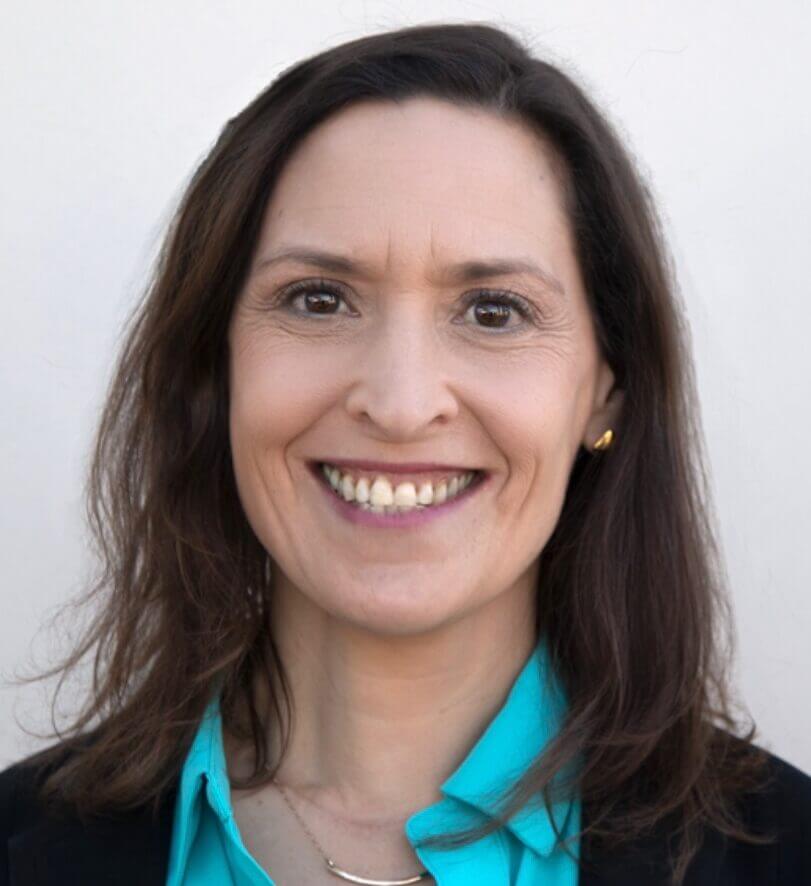
Sumi Paranjape

Sumi Paranjape
Day Job:
Principal, SW Consulting (Seattle, WA)
Bio:
My career has taught me that the biggest advances in health innovation are found at the intersection of multiple disciplines. I have worked with governments, industry, and non-profits to assimilate learnings from life sciences, technology, data science, and business to create disruptive and enduring solutions to pressing problems spanning health security, medicine, epidemics, and conservation.
Whether at a (standing) desk or a research bench, I love leading and mentoring teams to solve puzzles. With in-depth knowledge of biomedical sciences, virology, epidemiology, digital health, health security, data science and diplomacy, my best days will always be those when I have the opportunity to learn a new way to think about a problem.
As a leader and expert with over 20 years of experience in biomedical sciences, health security, and digital health, I enjoy leveraging my intricate understanding of biochemistry, genetics, virology, epidemiology, health security and data science as well as extensive diplomatic and international experience to identify solutions to pressing problems. Over the course of my career, I have been recruited to lead diverse, interdisciplinary teams to create and implement innovations in health sciences and technology to provide enduring and scalable solutions to challenges in global health, security, and conservation. I am adept at leading multinational teams and have established enduring partnerships and programs for health security and research throughout Africa, Southeast Asia, Latin America, Pakistan and India.
I currently serve as a principal lead for SW Consulting, working with clients in academic, government, and nonprofit sectors to develop strategic plans, communication, and partnerships for health, health analytics, technology, and security programs. Previously, I was COO at Bloodworks Northwest; Director of Health, Science and Technology Innovation at Vulcan, Inc. and the Paul Allen Family Foundation; Director of Business Development at MRIGlobal; Co-Founder and CEO at Maya Health Network; Southeast Asia Regional Lead for the Cooperative Biological Engagement Program at the Defense Threat Reduction Agency; and Program Manager and an AAAS Diplomacy- Security-Defense Fellow at the US Department of State.
Since 2021, I’ve served as a member of Technical and Scientific Advisory Group for TPP’s for Snakebite Antivenom Products at the World Health Organization.

Lena Kannappan
Bio:
A visionary leader who co founded Healthcare Triangle, Inc. (NASDAQ:HCTI). Lena leads and directs the business strategy and partnerships for HCTI. He is the Executive Sponsor for strategic partnerships, investments, M&A, and oversees some of the key alliances including Amazon Web Services and Google Cloud.
He founded FuGen Solutions – an identity security company acquired by 8KMiles. Lena is a serial entrepreneur with 25+ years of software industry experience.
Lena is one of the original founders of SAML 2.0 protocol and Federated Identity Management model for the industry while at Orange-France Telecom, which changed the way identity information is shared between service providers and enabled the huge success of SaaS, Cloud and Social Networking. Lena is a regular invited speaker in industry related events.
Lena is also Co-Founder of the American Tamil Entrepreneurs Association (ATEA). He was a former officer and served on the Board of Directors of the Tamil Nadu Foundation, USA (TNF) and current advisor of the San Francisco Bay Area chapter.
Lena has served on the California Advisory Council for University of Chicago since 2016.
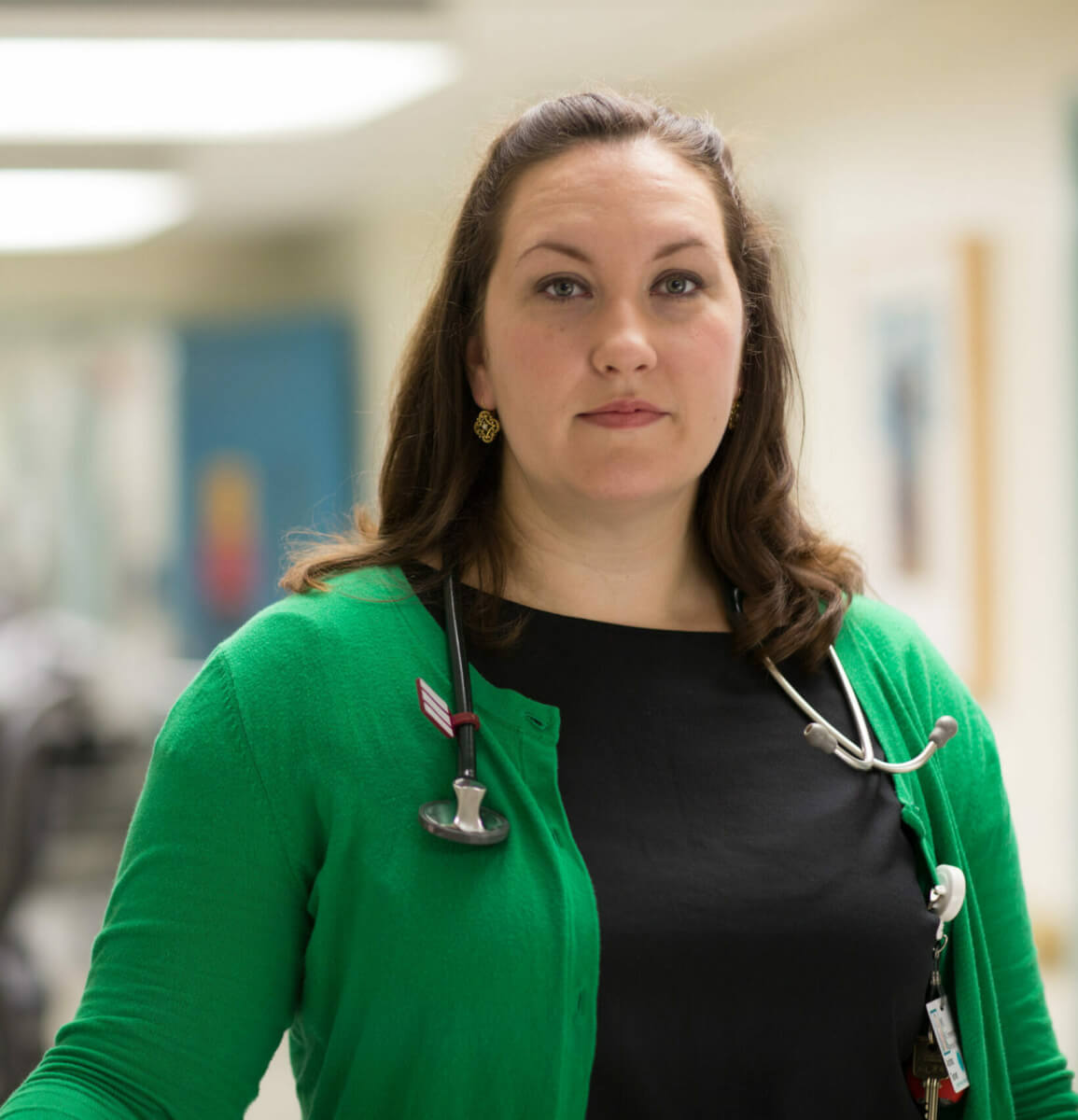
Dr. Andrea Tenner

Dr. Andrea Tenner
Day Job:
Director, Public Health Emergency Preparedness and Response, City and County of San Francisco (San Francisco, CA)
Bio:
Dr. Andrea (Andi) Tenner is a board certified in both emergency medicine and internal medicine and has a Master’s in Public Health from Columbia University/Mailman School of Public Health with a focus on forced migration, as well as a certificate from the American Society for Tropical Health and Hygiene in tropical infectious disease (CTropMed®).
She is currently the Director for Public Health Emergency Preparedness and Response for the City and County of San Francisco, and also holds an academic appointment as an Associate Professor in the UCSF Department of Emergency Medicine (DEM) as well as serving as affiliate faculty for the UCSF Institute for Global Health Sciences.
She has worked in multiple countries in South America and sub-Saharan Africa, including Guatemala, Peru, Ghana, Rwanda, Ethiopia, Tanzania, Uganda, and the Democratic Republic of Congo. She served as one of the core faculty for 4 years for the first Emergency Medicine residency in Tanzania. The curriculum that she helped develop there was later adopted as the official African Federation for Emergency Medicine (AFEM) Curriculum. Her field experience includes working in an active conflict zone in the Democratic Republic of Congo, a mass casualty incident in Dar Es Salaam, Tanzania, and serving as a Case Management Coordinator for the International Rescue Committee (IRC) in Sierra Leone during the Ebola outbreak. In this role, she oversaw all of IRC’s Ebola Isolation Units in country. Subsequently, her work has focused on emergency care systems development and she has served as a volunteer consultant for the World Health Organization (WHO), helping to develop components of the WHO’s Emergency Care Systems Toolkit. One of these tools is the WHO Basic Emergency Care Course, for which she served as an editor. She is also the founder of the UCSF WHO Collaborating Centre for Emergency and Trauma Care.
Additionally, she served as the AFEM Education and Training lead and Vice Chair for the AFEM Scientific Committee and is currently an AFEM Board Member. In the US, Dr. Tenner lectured for the US Department of State Office of Antiterrorism Assistance’s Senior Crisis Management Seminar, and has given several national talks on disaster preparedness and response. She served as Incident Commander for San Francisco’s COVID and Monkeypox responses and served as a panelist for the US National Academies of Science, Engineering, and Medicine’s seminar discussing lessons learned from the US COVID response.
Why I got into Snakebite: “Venomous snakebites can be crippling or fatal without rapid, appropriate emergency care and access to the right antivenom. Areas of the world where the risk of snakebite is high are often the same places where the odds of finding appropriate emergency care are lowest. Having access to emergency care is a right and we are working towards a future where everyone can get the care they need, when they need it.”

Dr. Nick Brown

Dr. Nick Brown
Day Job:
Clinical Director of Radiology, The Wesley Hospital (Brisbane, Australia)
Bio:
Dr. Brown is a medical graduate from the University of Queensland and is currently Clinical Director of Radiology at The Wesley Hospital and a Director of the Global Snakebite Initiative. He was a founding member of the GSI (Australia) and has been involved in snakebite advocacy and antivenom assessment since completing a project for the World Health Organization in 2007 on snake antivenom in sub-Saharan Africa. Since then, Dr. Brown has co-authored several papers on the need for improved prevention, awareness and treatment of snakebite.
Nick completed an MPhil in Bioscience Enterprise at The University of Cambridge and a Masters of Public Health at Harvard University. Formerly a Research Fellow at the Australian Venom Research Unit and Kings College London, he has a current academic appointment with The University of Queensland. He has a specific interest in Health Economics and cost-effectiveness studies, and works with the Centre for Business and Economics in Health. Nick is also certified by the European Board of Interventional Radiology (EBIR).

David Tognotti

David Tognotti
Day Job:
Head of Strategic Partnerships, Google (Mountain View, CA)
Bio:
David is an expert in assisting corporations with strategy, operational development, organizational growth, operations, sales, and legal. He has served in executive and board roles in several prominent Silicon Valley companies. David currently is a Director at Google.
As its COO, David scaled Monster, Inc. (Beats by Dre) to a global company with operations in 8 countries and $1.2B+ in annual revenue. Beats was sold to Apple for $3.2B.
Prior to that he was the COO at iBeat, Inc, which provides a SaaS based, IOT wearable solution, utilizing artificial intelligence to detect emergency events and diseases and save lives. iBeat was sold to Connect America.
Prior to that he was COO at RetailNext, Inc., which provides comprehensive in store analytics through its IoT / artificial intelligence (AI) technology to bring e-commerce style big data analytics to retailers. Prior to that he was the COO of 3D Robotics, a leading drone SaaS / Cloud / Big Data company.
He began his career as an intellectual property attorney and litigator in Silicon Valley, and has held senior level positions in companies in the wireless, mobile, software, and consumer electronics spaces. He holds a juris doctorate and a B.S. in economics from University of San Francisco. He is a member of the California State Bar, and admitted to practice law in California State and U.S. Federal courts.
He is a speaker on intellectual property issues and trends and a recognized expert in global brand protection and anti-counterfeit. He has been featured on Crime, Inc. and ABC’s 20/20 on counterfeit consumer products.
Advisors
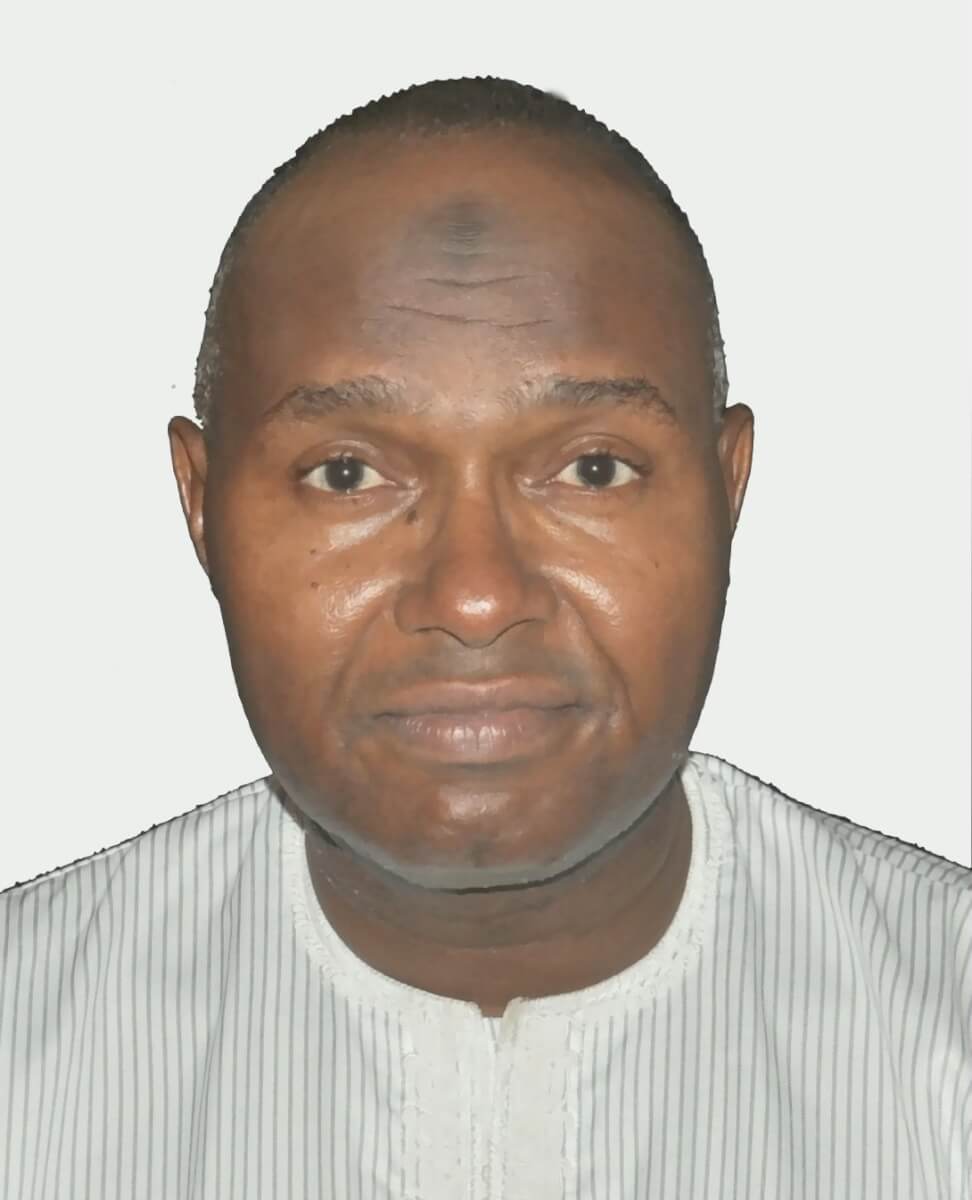
Abdulrazaq Habib
Clinical and West Africa Advisor

Abdulrazaq Habib
Clinical and West Africa Advisor
Day Job:
Professor, Infectious and Tropical Diseases, Bayero University (Kano, Nigeria)
Bio:
Abdul is a professor of Infectious and Tropical Diseases at Bayero University, Kano (BUK), Nigeria. He trained and worked in institutions in Nigeria, United Kingdom and Singapore. He trained in the field of epidemiology, immunology, clinical medicine, infectious and tropical diseases. He has been the dean and later provost at the College of Health Sciences, BUK. He is the pioneer chair of the International Society on Toxinology Africa & Middle East (IST-AME) section. He serves as an advisor, member or chair to several national and international committees, trusts and organizations including Nigerian Immunization Technical Advisory Group, National Noma (cancrum oris) Technical Advisory Group, Global Snakebite Initiative, Royal College of Physicians [London], WHO Geneva’s Strategic Advisory Group of Experts (SAGE) on meningococcal meningitis vaccinations, e.t.c. His research work focusses on tropical snakebite, antivenom therapy, infections, COVID-19, HIV/AIDS, tuberculosis, antimicrobial resistance, emerging infections, modeling, health economics and global health.
Why I got into Snakebite: “The same motivation for becoming involved in snakebite in Nigeria and globally is what motivates me to this day. And that is the hope death and disabling complications from snakebite will be a thing of the past, only to be gleaned from historical records. I hope the varied manifestations of snake envenoming will be easily detectable, and the treatment simplified and made widely available and affordable to the remotest parts of the tropics.”
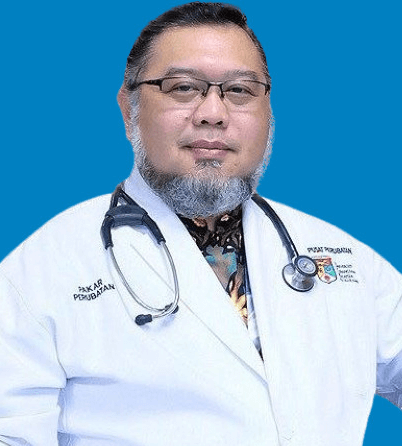
Dr. Ahmad Khaldun Ismail
Clinical and SE Asian Advisor

Dr. Ahmad Khaldun Ismail
Clinical and SE Asian Advisor
Day Job:
Associate Professor and Emergency Physician, Universiti Kebangsaan Malaysia (Kuala Lampur, Malaysia)
Bio:
Dr. Khaldun is an Associate Professor and Consultant Emergency Physician. He is the Founding Consultant & Advisor of Remote Envenomation Consultancy Services (RECS ASEAN) and Founding Director & Advisor of the ASEAN Marine animals & Snakes Envenoming (Poisoning) Management (AMSEM) symposium. He is a member of the WHO Global Roster of Experts and Technical Advisory Group on the Prevention and Control of Snakebite Envenoming. He is the Founding Advisor of the Clinical Toxinology Special Interest Group of the College of Emergency Physician, Malaysia, Honorary (visiting) scholar at Graduate School of Medicine, Tohoku University, Sendai, Japan, Honorary Consultant at the National Poison Center, Universiti Sains Malaysia, a Resource Person (Clinical Toxinology Expert) at the Malaysian Biodiversity Information System (MyBIS), Ministry of Energy and Natural Resources, and Board of Visitors for Psychiatric Hospitals, Malaysia. He is an active member of the Malaysian Society on Toxinology (MST) and was the past President (2013-2021). He is a life member of the International Society on Toxinology (IST), active member of the Asia Pacific Association of Medical Toxicology (APAMT) and Japanese Society of Clinical & Analytical Toxicology (J’s-CAT), and was a Review Advisor for the WHO Snakebite Envenoming Working Group (2018-2019) and UKM Research Ethics Committee (2016-2023). His special interests are Clinical Toxinology, Emergency Medicine and Prehospital Care. He founded various educational programs related to Clinical Toxinology for the public and healthcare professionals. He is passionate about sharing knowledge and frequently invited as a speaker for various programs in Malaysia and Internationally. He holds the authorship of several research and academic publications in related area of interests. He enjoys travelling, nature and a good cup of coffee/tea.
Why I got into Snakebite: “I am a patient's advocate for snake related injuries (SRI). If you are doing it for yourself, you might win or loose. But if it is for your patients, you will always win.”
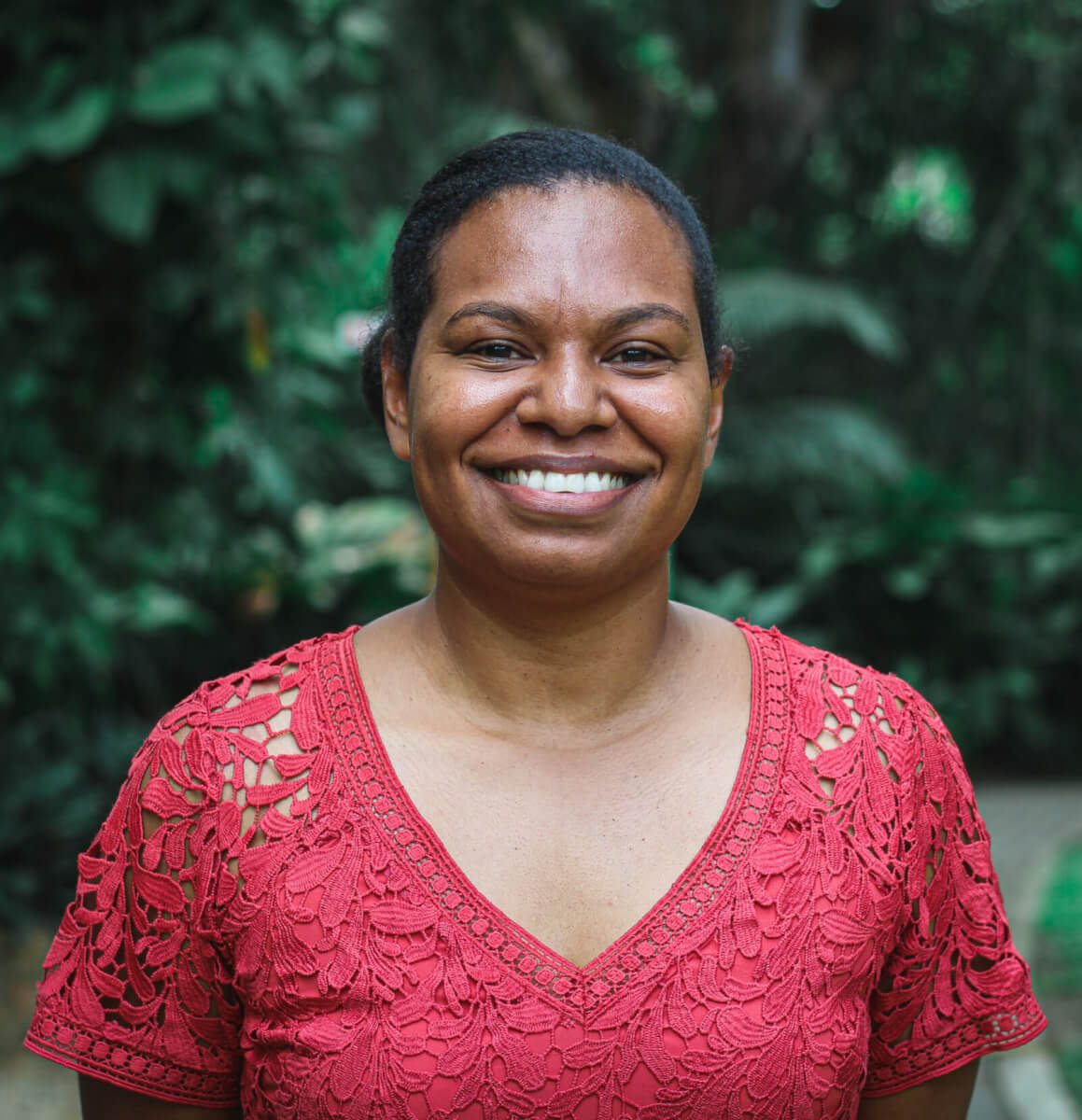
Dr. Arabella Koliwan
Clinical and Oceania Advisor

Dr. Arabella Koliwan
Clinical and Oceania Advisor
Day Job:
Emergency Physician, Hela Provincial Health Authority (Hela Province, Papua New Guinea)
Bio:
Arabella Koliwan is a Papua New Guinean trained emergency physician that practices in Hela Province, serving some of the PNG’s most remote communities.
Her clinical experience with snakebite is drawn from 7 years in the Port Moresby General Hospital ED, 2 of those years as the clinic doctor for the Charles Campbell Toxinology Centre (CCTC).
Why I got into Snakebite: “Arabella remains passionate about continuing snakebite work because she has seen first-hand that deaths from snakebite envenomation are entirely preventable if victims are given access to the correct treatment and care. She feels strongly about continuing advocacy and education around snakebite as well as enhancing access to life-saving treatment for all victims of snakebite in PNG.”
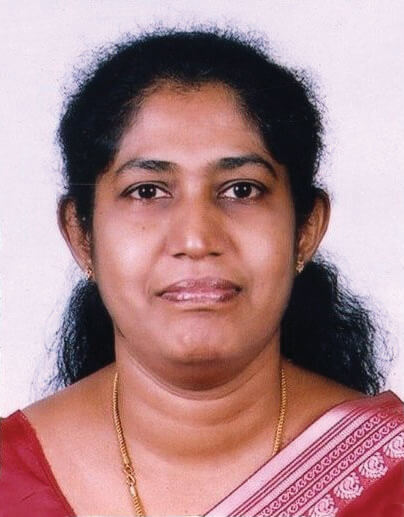
Christeine A. Gnanathasan
Clinical, Community Ed. and S. Asian Advisor

Christeine A. Gnanathasan
Clinical, Community Ed. and S. Asian Advisor
Day Job:
Senior Professor in Medicine, Specialist in General Medicine, Faculty of Medicine, University of Colombo (Colombo, Sri Lanka)
Bio:
Christeine has been actively involved in educating doctors, health workers and the public on first aid & prevention on snakebite in Sri Lanka for the better part of three decades. Christeine has worked on snakebite research extensively and published manuscripts in international peer reviewed journals, guidelines and books on snakes and translated into local languages.
Christeine is still actively working on indigenous antivenom production, a venom detection kit for snakebite and long term effects of snakebites.
Christeine is board certified as a specialist in General Medicine and has had overseas postgraduate MD training in general Internal Medicine at the John Radcliffe Hospital in Oxford (UK) and laboratory hands-on training on venom/antivenom pharmacokinetics by using ELISA at the WHO standardized laboratory for venom & antivenom at the Liverpool School of Tropical Medicine (Liverpool, UK). Having worked as a medical specialist in consultant grade at the National Hospital Sri Lanka, Colombo, Christeine has experience in running out – patient and in-patient general medical and toxicological services in tertiary care hospitals. Her experience includes running general medical Clinics, and providing care for poisoning and snakebite patients in ICU’s and wards. Christeine is on the hotline Advisory Group for the management of snakebite in Sri Lanka and Poison Information Centre, NHSL.
Christeine was also an active member involved in snakebite expert committee of SLMA since 1993 and involved in developing national guidelines on management of snakebite for Sri Lanka.
Together with colleagues, they established the Snake Venom Research Laboratory & Herpetarium Unit (SVRL&H) of the Department of Clinical Medicine, Faculty of Medicine. Presently, Christeine is the Consultant in Charge of this unit working towards indigenous antivenom and clinical trials, pharmacovigilance on adverse reactions and anaphylaxis due to antivenom therapy on snakebite management. She has played an important role in the development of monospecific antivenom (Polonga Tab) against Sri Lankan Russell’s viper venom and subsequently conducted randomized clinical trials on Polonga Tab for Russell’s viper envenomed patients in Anuradhapura, Sri Lanka for the first time in 1995 – 1997, where she is the principal Investigator of the clinical trial.
Christeine was also a member of the WHO Snakebite Envenoming Working Group (SBE-WG) roadmap in 2018 from Sri Lanka.
In addition to numerous awards both regionally and internationally, in addition to a significant number of publications on the issue, Christeine has pioneered research in Sri Lanka with her mentor Professor Sir David Warrell, Prof David Theakston and Prof Rezvi Sheriff.
We manufactured an indigenous monospecific antivenom on Russell’s viper envenoming in 1995 for the first time in collaboration with university of Oxford, Liverpool Tropical school of Medicine and University of Colombo under the leadership Prof David warrell, Prof David Theakston and Prof Rezvi sheriff.
Christeine has collaborated with the University of Malaya, working on research studies on the characterization of hump-nosed venom and cross neutralization of Malayan pit viper antivenom for Sri Lankan hump nosed venom and is ready to embark on a clinical trial.
Why I got into Snakebite: “I have been involved in snakebite research since 1993. The motivation for my involvement in snakebite research, community education and clinical management of snakebite was when I realized there was increased incidence of snakebite morbidity & mortality in Sri Lanka, which was recorded in the Guinness Book of Record in 1990. So, I wanted to reduce human suffering from snakebite in Sri Lanka.”
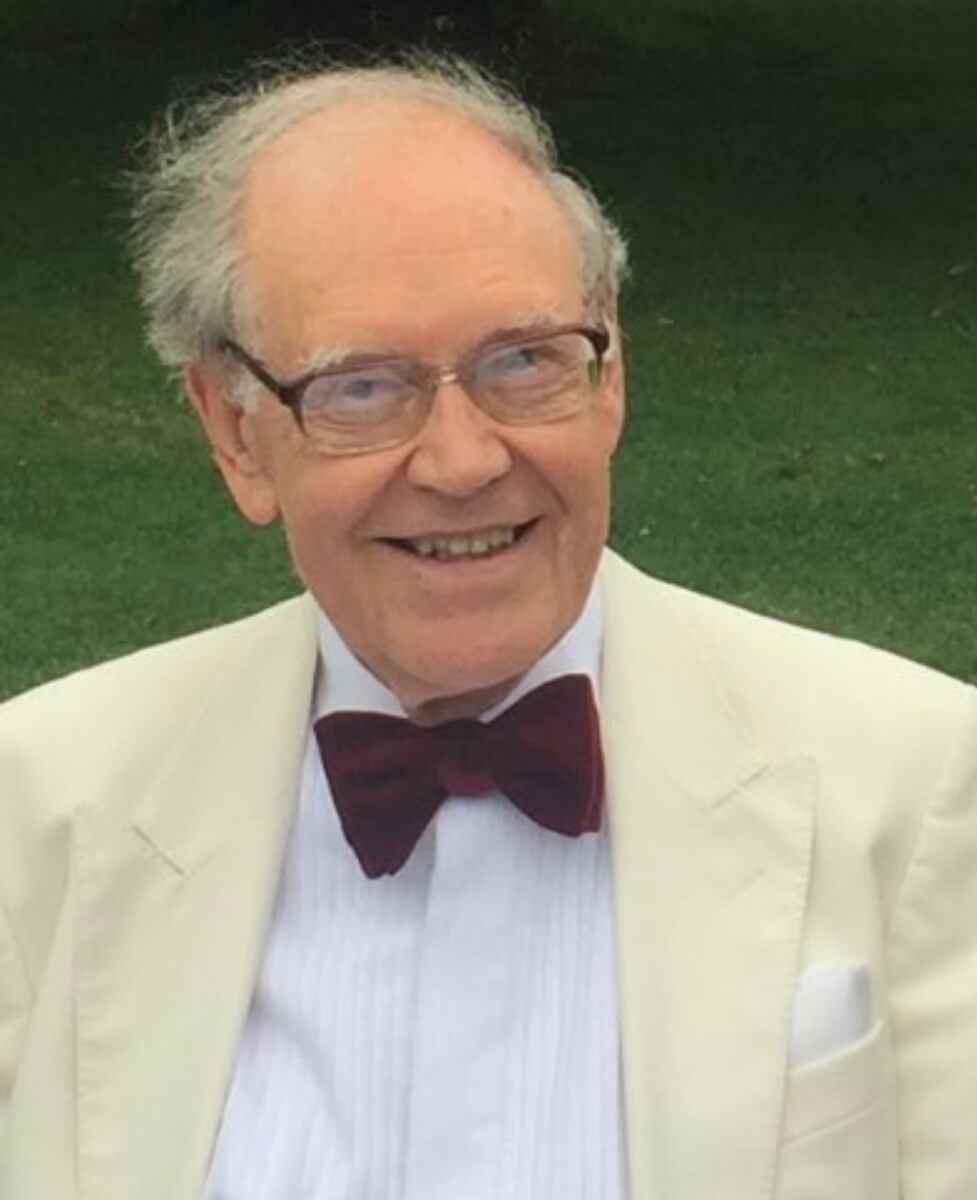
Professor Sir David Warrell
Clinical Advisor

Professor Sir David Warrell
Clinical Advisor
Day Job:
Emeritus Professor of Tropical Medicine, University of Oxford (Oxford, UK)
Bio:
Professor Sir David Warrell (KCMG DM DSc (Oxon), FRCP, FRCP Ed, FMedSci) is an Emeritus Professor of Tropical Medicine and Honorary Fellow of St Cross College, University of Oxford.
After graduating in Medicine from the University of Oxford and St. Thomas’ Hospital London Medical Schools, David trained in respiratory physiology and chest medicine at Brompton Hospital and the Royal Postgraduate Medical School (RPMS), Hammersmith Hospital, London, where he carried out pathophysiological studies in a variety of respiratory diseases with Moran Campbell, Charles Fletcher, Richard Edwards and Simon Godfrey. In 1968 he had his first opportunity to work in the tropics while based at RPMS. He began an investigation of physiological disturbances and treatment of the severe Jarisch-Herxheimer Reaction in epidemic louse-borne relapsing fever in Addis Ababa, Ethiopia, with Eldryd Parry, Anthony Bryceson and Peter Perine (NAMRU), that continued intermittently until 2004.
From 1969-70, he was a postgraduate researcher (Radcliffe and Peel Traveling Fellowships) with John B. West at the University of California, San Diego, studying the comparative respiratory physiology in diving mammals (dolphins and seals, and how they avoid “the bends”) and fish, and working on a NASA program to investigate the respiration of spacemen in orbital flight.
From 1970 to 1974 and in 1977, he was at Ahmadu Bello University in Zaria, Northern Nigeria as Senior Lecturer/Reader, consultant, physician, teacher and researcher on bacterial meningitis (diagnostic tests, vaccine effectiveness, antibiotic therapy), emerging tropical asthma, other lung diseases, rabies (mechanism of hydrophobia, diagnosis during life) and snakebite (epidemiology, immune-diagnosis, pathophysiology, antivenom treatment), working with Eldryd Parry, Anthony Bryceson, Brian Greenwood, Hilton Whittle and Neil Davidson. He returned to Oxford in 1975 as NHS consultant general physician at the Radcliffe Infirmary and later at the John Radcliffe Hospital, working especially with Dr. Bent Juel-Jensen on Infectious Diseases and Expedition Medicine.
In 1978, David was approached by Peter Williams and Tom Hopwood of the Wellcome Trust to start a new research unit in SE Asia, based in the Nuffield Department of Clinical Medicine (NDM) in Oxford under David Weatherall. After visiting several possible countries, he and his wife (Dr. Mary Warrell, a clinical virologist) founded the Wellcome-Mahidol University-Oxford Tropical Medicine Research Program in the Faculty of Tropical Medicine, Bangkok, Thailand where they lived and worked from 1979 to 1986. Their research included pioneering studies on the pathophysiology (the mechanical hypothesis) and treatment of cerebral malaria (inefficacy of dexamethasone) carried out with Sornchai Looareesuwan, Rodney Phillips, Nick White, and many Thai and other international collaborators. He helped Nick White with studies of anti-malarial drugs. Research on rabies encephalomyelitis at Bamrat Hospital and rabies post-exposure prophylaxis at Queen Saovobha Memorial Institute was led by Mary Warrell.
David pursued his personal interest in snakebite in a long-standing collaboration with David Theakston of the Liverpool School of Tropical Medicine (LSTM) for most of his subsequent research on this topic. While based in Thailand, he initiated research on malaria and snakebite (Russell’s viper) with Aung Than Batu and Tun Pe at the Department of Medical Research in Burma, and with Rezvi Sheriff and Ariaranee Ariaratnam at the Faculty of Medicine, University of Colombo, Sri Lanka. In 1986, he began work on snakebite, malaria and thalassaemia with Sirus Naraqi and Bart Currie at the University of Papua New Guinea in Port Moresby, a program later headed by David Lalloo who is now director of the LSTM, and greatly expanded by Dr. David Williams.
In 1986, David returned to Oxford as founding Director of the Centre for Tropical Medicine, coordinating the rapidly expanding Oxford tropical research network. In 1987, he was made Oxford’s first University Professor of Tropical Medicine and Infectious Diseases. He helped to establish new research units in Kilifi, Kenya with Geoff Pasvol, Kevin Marsh and Bob Snow (severe malaria from 1989), in Brazil, Ecuador, Colombia, Peru and the Caribbean (snakebite from 1988), in Papua New Guinea (snakebite, malaria and cryptococcal meningitis 1986-2004), in Chittagong, Bangladesh with John Harris (Newcastle) and Md Abul Faiz (snakebite 2002-2008); in Sri Lanka with Michael Eddleston (snakebite, plant and chemical poisoning from 1985), in Kenya with Charles Gilkes (HIV studies from 2000) and continuing snakebite studies in Northern Nigeria with Abdul Nasidi, Nandul Durfa, and Abdul Habib, until the present time. Since retirement, he has maintained active research links in Nigeria, Bangladesh, Vietnam, Burma (until the brutal military coup in 2021), Thailand, Sri Lanka, Martinique, St Lucia and Peru and has established new collaborations in the field of snakebites in Nepal, and India. In 2018, he was awarded a grant of £3.4 million by the Hamish Ogston Foundation, UK to carry out clinical trials of new antivenoms in Burma, India and Vietnam, but this work was so much delayed by the COVID19 pandemic (and by civil strife in Burma) that it has sadly had to be abandoned.
Professor Sir David was a founding director of the Global Snakebite Initiative (GSI) and currently serves as a clinical advisor to the GSI-USA Foundation.
Among his other activities:
Writer/editor: Oxford Textbook of Medicine (5th edition 2010), Oxford Handbook of Expedition and Wilderness Medicine, Essential Malariology, more than 400 research papers, as well as articles, guidelines (WHO malaria and SEARO and AFRO snake bites) and textbook chapters on malaria, rabies, relapsing fevers, other tropical and infectious diseases, comparative respiratory physiology, respiratory diseases, herpetology, venomous animals, envenoming and plant and chemical poisoning.
Consultant: World Health Organization, British Army, Foreign and Commonwealth Office (health of UK prisoners in foreign jails), Medical Research Council, Royal Geographical Society, Earth Watch International (conservation), UK Poisons Centres (ToxBase), Zoological Society of London and Cotswold Wildlife Park.
Past President: Royal Society of Tropical Medicine and Hygiene and International Federation for Tropical Medicine.
Chairman: Medical Research Council’s “AIDS Therapeutic Trials Committee” and “China UK Research Ethics Committee”.
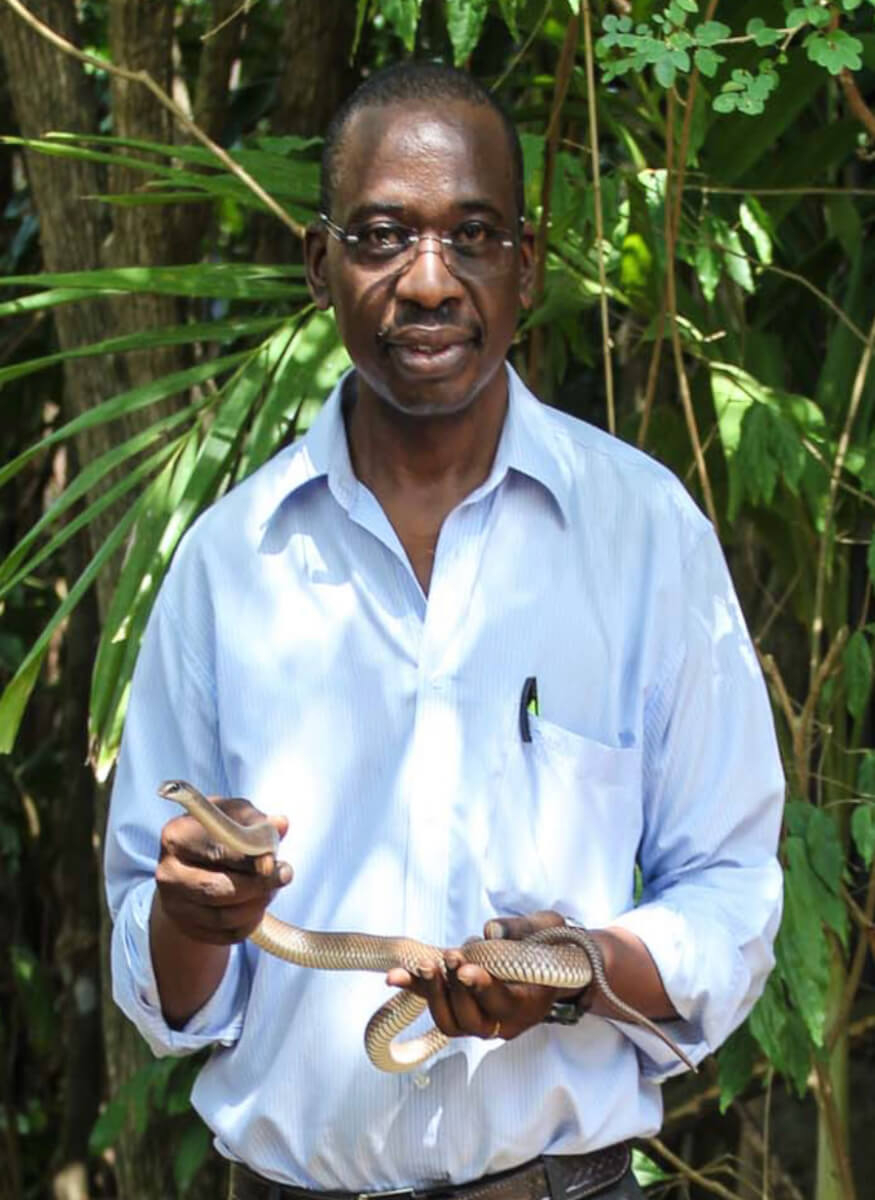
Dr. Eugene Erulu
Clinical and East Africa Advisor

Dr. Eugene Erulu
Clinical and East Africa Advisor
Day Job:
Doctor in Charge, Watamu Hospital (Watamu, Kenya)
Bio:
Dr. Eugene Valentine Erulu, MD is currently Doctor in Charge at Watamu Hospital in Watamu, Kenya, where he has passionately treated snakebite patients for the better part of three decades.
Dr. Erulu is a graduate of the Volgograd State University of Medicine (Russia).
Furthering his specialty studies, he attended a clinical toxinology short course with special emphasis on snakebite management at the University of Adelaide, Australia.
Dr. Erulu has been a frequent presenter, including at the Global Snakebite Initiative and IST Congresses in Melbourne (Australia) Oxford (UK), Dakar (Senegal) and Abidjan (Ivory Coast).
He has participated in the writing of national snakebite management guidelines for Kenya and in the production of educational videos on snakebite management in Benin. Dr. Erulu has also served as a consultant on snakebite management for various local hospitals.
He has also acted as a peer reviewer for PLOs on snakebite related manuscripts.
Why I got into Snakebite: “In 1994, I relocated to Watamu as a young doctor and met the late James Ashe and his lovely wife Sanda, who at the time were managing the (then-named) Bio-Ken Snake Farm.
They were not doctors, but many snakebite patients used to come to them since they were the only ones who kept antivenom for their personal use if needed. Whenever they got a snakebite victim they would personally drive them to Malindi (25km) or Kilifi (45km) for antivenom administration.
Since I was the first doctor to practice in Watamu, the couple encouraged me to read more about snakes and snakebites, a topic that is sadly not taught in Medical School. I quickly developed a deep interest.
I later became a team member and together we managed many snakebite victims at my clinic which was quite fascinating. The majority of the victims were poor peasants who could obviously not afford the antivenom, but they got it for free. That joy of saving lives from this neglected tropical disease made me really focus on snakebite.”
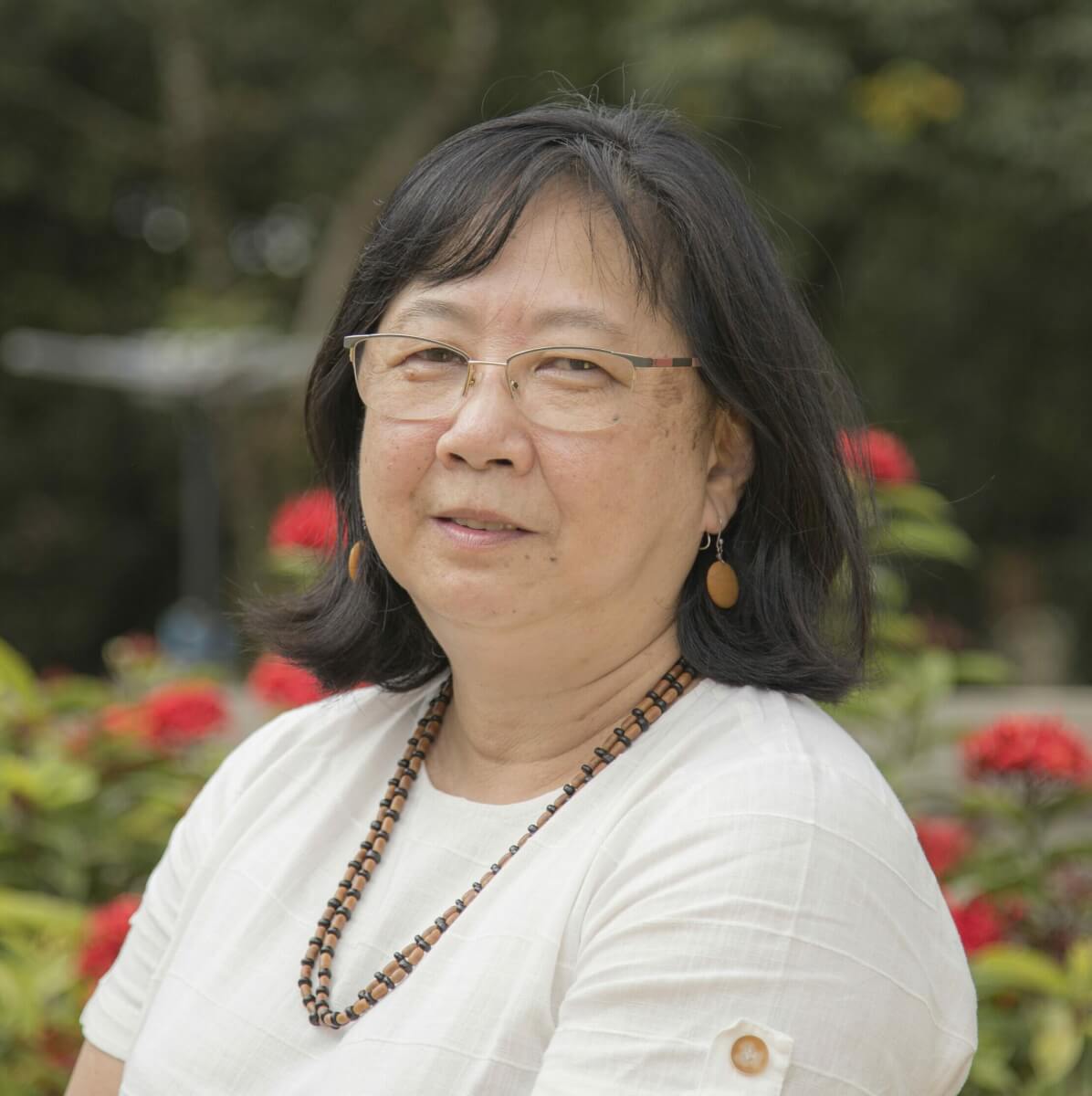
Fan Hui Wen
Clinical and Latin America Advisor

Fan Hui Wen
Clinical and Latin America Advisor
Day Job:
Technical Director of Antivenom Manufacturing, Instituto Butatan (São Paulo, Brazil)
Bio:
Fan Hui Wen is currently the Technical Director of Antivenom Manufacturing at the Instituto Butantan’s Bioindustrial Center in São Paulo, Brazil. She is responsible for the manufacture of equine-derived immunoglobulins, including 12 different types of products and has been working for the improvement of antivenom manufacturing processes.
Fan Hui has extensive experience in working on the management of patients envenomed by venomous animals, mainly in emergency care and antivenom treatment, and designing and implementing medical protocols.
As PI or co-investigator, she has participated in clinical trials to assess the efficacy and safety of antivenoms and studies on clinical and epidemiological aspects of envenoming caused by venomous snakes, scorpions, spiders and caterpillars. In addition, she acquired experience in public health policy and coordinated the national program of surveillance and control of envenoming by venomous animals.
Collaboration with Latin American researchers resulted in a network composed of public antivenom-manufacturing laboratories, with the aim of strengthening antivenom manufacturing, and increasing availability and accessibility of antivenoms for vulnerable groups.
Over the last ten years, Fan Hui has been working in collaboration with research groups in the Brazilian Amazon region, adding qualitative studies and medical anthropological studies on snakebite envenoming among indigenous and riverine communities. As a result of these experiences, she produced several peer-reviewed scientific papers, trained hundreds of national and international health professionals.
Fan Hui has been with the Instituto Butantan in several capacity’s since 1992, serving as Chief Physician and Medical Consultant at the Hospital Vital Brazil, as Director of Center for Cultural Development and as Projects Manager in the Technological Development and Manufacturing division. From 2004 to 2007 she served as a Technical Consultant at the Brazilian Ministry of Health in the National Program of Snakebite and Other Venomous Animals program.
Fan Hui received her Doctorate in Public Health from the University of Campinas Medical School (Campinas, Brazil); a Masters in Epidemiology from the Federal University of São Paulo (São Paulo, Brazil); an Undergraduate Degree in Medicine at the Medicine School of the University of São Paulo (São Paulo, Brazil) and performed her residency in Infectious and Tropical Diseases at the Hospital das Clinicas Medicine School at the University of São Paulo (São Paulo, Brazil).
Why I got into Snakebite: “During my medical residency in Infectious and Tropical Diseases, I've never seen a patient bitten by a venomous snake and considered it to be an enormous gap for my professional life. Then, I decided to spend some time at Butantan Institute in a voluntary internship. There. I could learn all about snakebite envenoming, discussing with researchers different aspects related to animals, pathophysiology of venom action, process of manufacturing specific antivenom, and more importantly the recovery of patients receiving antivenom. The reversal of signs and symptoms seemed to be magic! There was also a large avenue of opportunities to develop clinical research, prepare educational materials, organize training and participate in public health policies to reduce the burden of the disease.
Antivenom accessibility is a key point to the success in the antivenom treatment of snakebite envenoming, as efficacy is dependent on the precocious administration of specific antivenom. Most antivenom manufacturing laboratories are public, and located in developing countries, resulting in the lack of availability as a consequence of insufficient local manufacturing. After 20 years of cumulative knowledge in dealing with snakebite patients and administering antivenoms, in the last decade I've been dedicated to work in the bio-industrial area and, more specifically, in antivenom production. The aim is to increase availability and safety of snake antivenoms to provide local demands, especially in distant rural areas, and to enable professionals working in primary healthcare units to treat patients as closely as they are from their families and communities.
My motivation to continue working in this field is to take part in the WHO strategy to reduce the mortality of snakebite envenoming by 50%, making sure that by 2030 everyone who needs antivenom has access to an affordable, safe, effective product in Latin America.”

José María Gutiérrez
Technical and Latin America Advisor

José María Gutiérrez
Technical and Latin America Advisor
Day Job:
Emeritus Professor, University of Costa Rica (San Jose, Costa Rica)
Bio:
José María Gutiérrez has a B.Sc. degree in Microbiology (University of Costa Rica, 1977) and a PhD degree in Physiological Sciences (Oklahoma State University, USA, 1984). For over 40 years he taught Immunology, Biochemistry, Research Methods and Cellular Pathology at the School of Microbiology of the University of Costa Rica, and as a researcher at Instituto Clodomiro Picado of the same university. At present he is Emeritus Professor of the University of Costa Rica. His research interests have focused on the biochemistry and mechanism of action of snake venoms and toxins, particularly in relation to the myotoxic and hemorrhagic activities of venoms. He has also studied the preclinical efficacy of antivenoms used in the treatment of envenomings, as well as the development of antivenoms for various regions of the world and in the search for novel inhibitors of venom toxins His interests also include scientific development policies, history of science and the social implications of scientific work. Gutiérrez has published over 600 contributions in journals and book chapters in the field of Toxinology. He has led several regional research projects in Latin America and has served as advisor of the World Health Organization (WHO) and the Pan American Health Organization (PAHO) in the subject of antivenoms. He contributed to the international initiative, led by the government of Costa Rica and other countries and organizations, to bring snakebite envenoming as a priority neglected tropical disease at the WHO. Gutiérrez has been a member of the Board of Directors of the Global Snakebite Initiative since its foundation and is Associate Editor of the journal Toxicon and Section Editor of PLoS Neglected Tropical Diseases.
Why I got into Snakebite: “Since the early stages of my career, when I was an undergraduate student at the University of Costa Rica, I had the opportunity to work at Instituto Clodomiro Picado (ICP), which focuses its work on the topic of snakebite envenoming. I became fascinated by snake venoms and decided to contribute to the understanding of venom composition and mechanisms of action, particularly regarding the severe tissue damage inflicted in envenomings by viperid snakes in Latin America. As ICP manufactures and distributes antivenoms for the treatment of these envenomings in many countries, I also became interested in the development of antivenoms, the assessment of the preclinical efficacy of antivenoms and the clinical aspects of envenomings and their treatment. Also, the public health aspects of this topic called my attention, including the social determinants of this neglected tropical disease. Therefore, in addition to the scientific challenges in this field, the human impact of working on this health issue has been, and continues to be, a permanent stimulus in my career.”

Kelly McLaughlin
Strategy and Development Advisor

Kelly McLaughlin
Strategy and Development Advisor
Bio:
Kelly is the founder and CEO of FIT Strategic Consulting, LLC, which specializes in building strategies and systems that rapidly grow startup nonprofit organizations.
Before beginning her consulting practice, Kelly held numerous positions directing individual giving and fundraising programs at advocacy and arts organizations, such as the Friends of Greenbelt Theatre, the Chesapeake Climate Action Network, and the Washington Office on Latin America. She has served on the board of directors of numerous other organizations, including Rising Organizers and the Greenbelt Community Foundation.
Kelly holds a Master of Arts degree in Social Justice and Human Rights from Arizona State University and a Bachelor of Arts in International Relations and Spanish, with a minor in Economics from Elon University.
When she isn’t working with clients, Kelly spends her time running—whether that’s training for her next 10K race, keeping up with her young daughter, or playing with her rescue dog. When not running, Kelly can be found hiding in a cozy nook somewhere reading.

Dr. Matt Lewin
Scientific Advisor

Dr. Matt Lewin
Scientific Advisor
Day Job:
Ophirex / California Academy of Sciences
Bio:
Dr. Lewin is a U.S. based emergency medicine physician and holds a PhD in the field of neurophysiology. He is an elected fellow of the California Academy of Sciences, a fellow of the American College of Emergency Physicians, Fellow National of the Explorers Club and on the Board of the North American Society of Toxinology, previously having served on the WHO Snakebite Envenoming Working Group. He earned his MD and PhD at the University of Texas/MD Anderson Cancer Center Graduate School of Biomedical Sciences and was awarded the 2020 Distinguished Alumnus Award and was the 2017 recipient of the Zeigler Award for Outstanding Mentorship in Global Health Sciences from the University of California, San Francisco. He is a graduate of University of California, Berkeley.
His current focus is on the development of small molecule inhibitors of snake venom sPLA2s and other key venom components, the biological bases of their clinical potential, limitations and use in conjunction with existing standards of care. A grantee of the Wellcome Trust, he is also the scientific founder of the Public Benefit Corporation, Ophirex, Inc., dedicated to development of globally accessible antidotes for life- and limb-threatening diseases such as snakebite envenoming. He is the author and co-author of more than 75 peer-reviewed articles and book chapters. His work has been featured in the New York Times, Lancet, Nature, Discover, Scientific American, NPR, the BBC and in the influential documentary on snakebite, Minutes to Die.
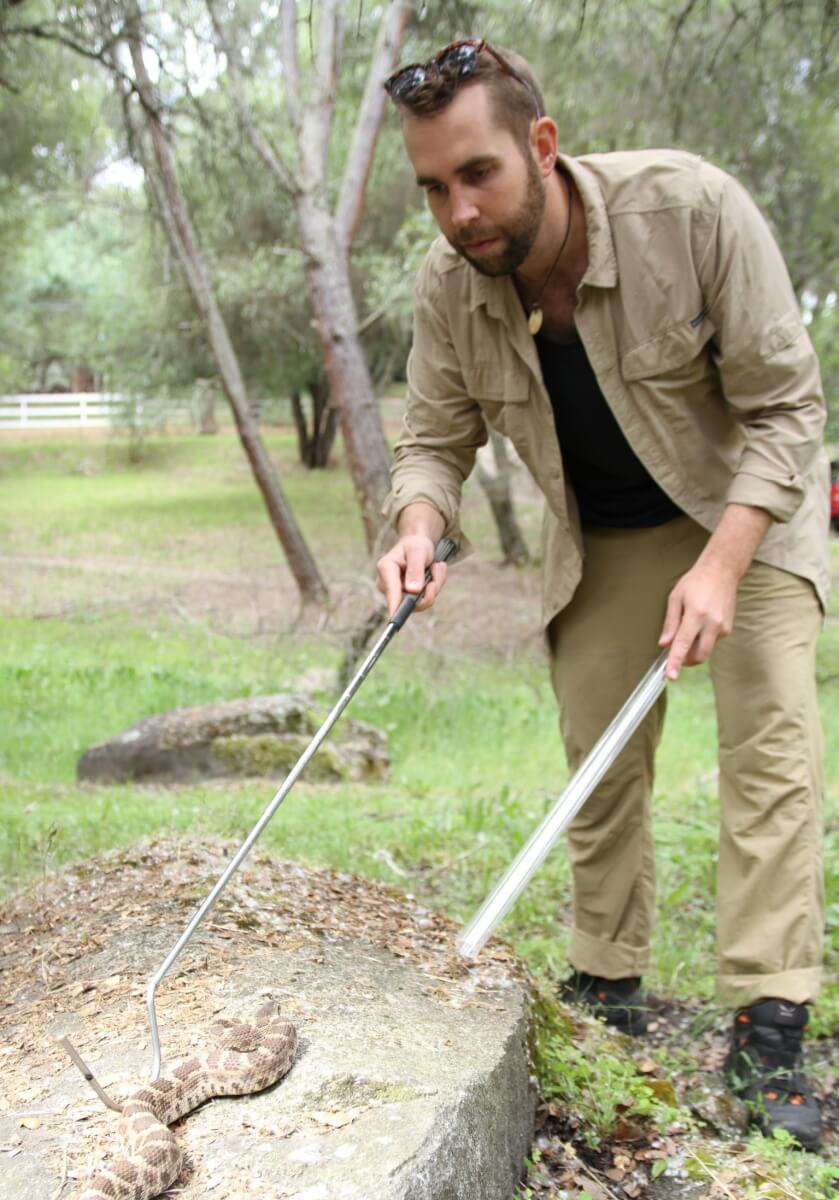
Michael Starkey
Conservation Advisor

Michael Starkey
Conservation Advisor
Day Job:
Executive Director, Save The Snakes
Bio:
Michael Starkey is a conservation biologist, ecological consultant and public speaker working to educate and involve the public in wildlife conservation issues. Michael has a diverse background in the field of wildlife conservation, and he has worked as an ecological consultant for environmental consulting firms and government agencies. Michael is the Founder of Save The Snakes and serves as Executive Director. He uses his knowledge of snake ecology, positive attitude to inspire, and enthusiasm for snake conservation to engage the public with protecting these incredible animals.
Why I got into Snakebite: “Snakes are critically important animals for our world. Snakes maintain balance in the ecosystem, they serve as a natural form of pest control, and their venom is used to make medicines that literally save human lives. However, many snake species are increasingly threatened with extinction and snakebite is an unrelenting burden on communities across the globe. To save snakes and stop snakebite, we must bridge the gap between snake conservation and human-snake conflict mitigation. ”

Naoual Oukkache
Laboratory Science and N. Africa Advisor

Naoual Oukkache
Laboratory Science and N. Africa Advisor
Day Job:
Lead, Venoms and Toxins Laboratory, Pasteur Institute of Morocco (Casablanca, Morocco)
Bio:
Dr. Naoual Oukkache is the head of the Venoms and Toxins Laboratory at the Pasteur Institute of Morocco. Driven by passion, Naoual excels in animal venoms and antivenoms focusing on proteomics, pharmacology, antibody engineering and preclinical studies.
Her work focuses on venom composition, drug development to treat envenomations and clinical trials to test those drugs.
She trained at and continues to collaborate with several institutes including Marseille University of Medicine, Butantan Institute, Cuernavaca Biotechnology Institute, Kuala Lumpur Monash University; as well as the Albila, Atheris and Bioclon companies. Naoual currently participates in clinical studies and develops innovative antivenoms.
Dr. Oukkache has co–authored 30+ publications, is aneditorial board member of journals, a member of scientific committees and societies, coordinates international grants and supervises Masters and PhD students.
Why I got into Snakebite: “I have always been fascinated by snakes. When I was five and on holiday with my family in southern Morocco, a young kid was making holes to hunt snakes when he was bitten. While he was fine and everything ended well, since that day, I was deathly afraid of snakes. I remember asking myself a lot of questions about this little animal, like how the venom induces the pain and probably death. That curiosity stayed with me and years later, I had the opportunity to join the prestigious Instituto Butantan in São Paulo, Brazil and immediately had direct contact with snakes which further strengthened my passion.
What attracts me most in my work is to find solutions for this major health problem. As long as the problem exists, anything you do doesn’t feel like enough. The day we achieve a decrease in deaths and amputations due to these venomous animals, every specialist will be proud and feel a sense of relief. However, the main thing for now is to find solutions, not just for the people of my country, but around the snakebite endemic globe. That is our primary objective.”
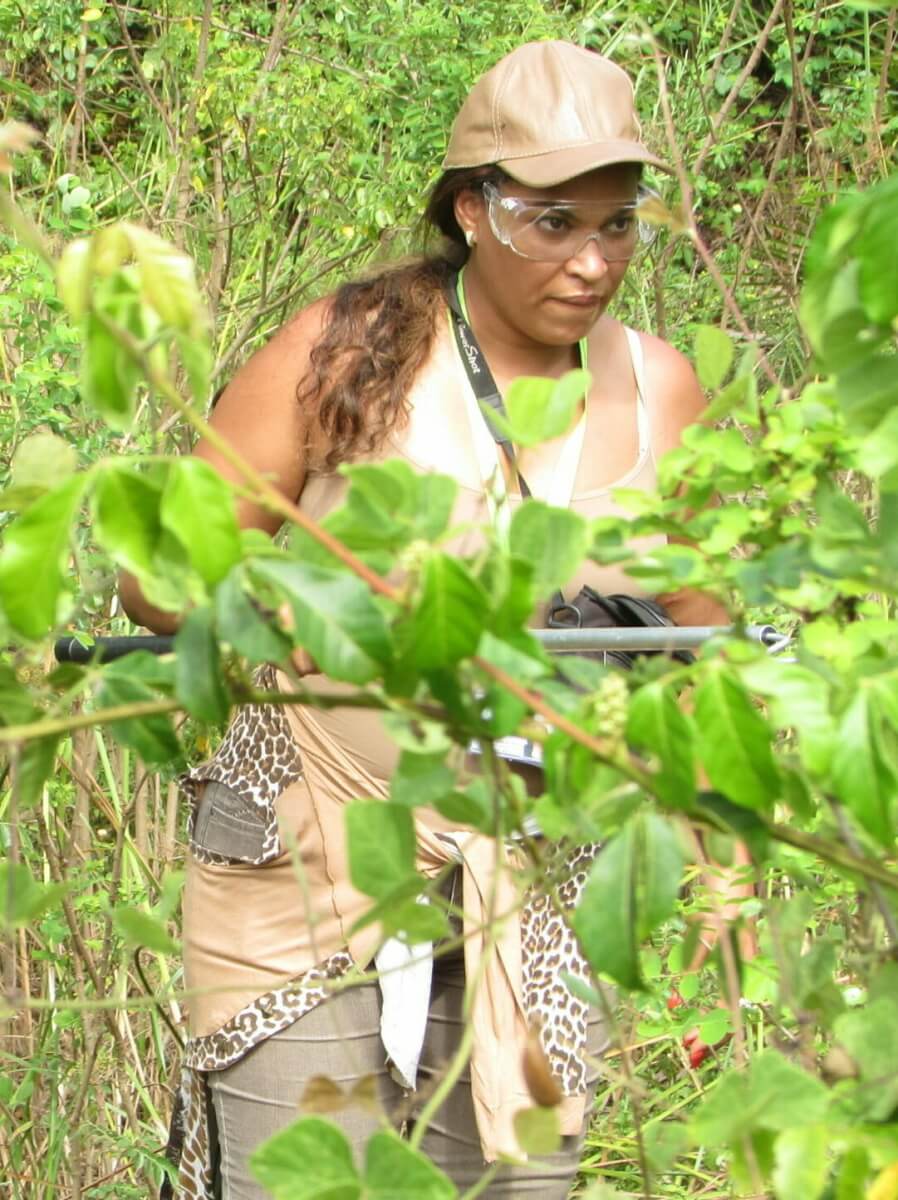
Paula de Oliveira
Clinical, Community Education and SW Africa Advisor

Paula de Oliveira
Clinical, Community Education and SW Africa Advisor
Day Job:
Dean, University of Katyavala Bwila Faculty of Medicine (Angola)
Bio:
Paula Regina Simões de Oliveira is one of Angola’s leading experts on snakebite. Paula is a member of the Angolan Parliament and serves on the Health, Education, Higher Education and Science and Technology Commission.
Paula is the Dean at the University of Katyavala Bwila’s Faculty of Medicine. Her expertise covers epidemiology, treatment, clinical syndromes and community education. Paula has developed educational programs for health workers in the diagnosis and treatment of snakebites, as well as community awareness and education tools for local populations. Paula is also involved in studies on local Angolan snake venoms and researches local snake distributions of the country.
Paula has participated in over 70 scientific events, 7 research projects and 15 scientific articles includes authoring a book and co-authoring 2 books. She was also presented 2 gold medals for her work at the innovation fair in Nuremburg, Germany in 2015.
Why I got into Snakebite: “Since 2013, when I started to have contact with cases of snakebite envenomation, I decided to devote myself to this cause, because most cases ended in death after a few days. The case of an 8-year-old child from Cangandala, who while playing with his hands in holes, was bitten by a puff adder (Bitis arietans). The child had presented with bleeding disorders, unfortunately the serum available at the hospital did not contain the bitis arietans venom, and to our astonishment, the boy's parents took him for traditional treatment, refusing the hospitalization. It was clear to me the importance of working with communities to prevent accidents and discourage them from resorting to traditional therapists, as well as advocating with the competent authorities in my country to ban the importation of serums that are not effective for the envenomation caused by the snakes of Angola.”

Dr. Ravikar Ralph
Clinical and India Advisor

Dr. Ravikar Ralph
Clinical and India Advisor
Day Job:
Professor, Clinical Toxicology Unit and Poisons Information Center, Department of Medicine, Christian Medical College and Hospital (CMC), (Vellore, India)
Bio:
Dr. Ravikar Ralph is Professor at the Clinical Toxicology Unit and Poisons Information Center, Department of Medicine, Christian Medical College and Hospital (CMC) Vellore, India. He completed his post-graduate training in Internal Medicine at CMC Vellore in 2012. Dr. Ralph’s introduction to many neglected tropical diseases including snakebites began at the very early stages of his medical career. As a medical trainee, Dr. Ralph was particularly affected by the devastating impact that snakebite deathshad, not only on the victims themselves, but on entire families. Poverty-stricken households were further impoverished, pushed into a never-ending spiral of debt, disease and misery. He felt sure that he wanted to pursue a career that would help prevent such deaths and collective suffering in the future.
Years later as faculty member at the Clinical Toxicology Unit at his alma mater, Dr. Ralph feels fortunate for the opportunity to work towards this very goal. At CMC, Dr. Ralph is primarily involved with the clinical care of patients with poisonings, bites and stings; undergraduate and postgraduate medical training; and research. He has authored and co-authored peer-reviewed papers mainly in the areas of snakebite mitigation, antivenom access,clinical toxicology and infectious diseases. Dr. Ralph also co-ordinates activities at the CMC Poisons Information Center, a nationwide service that supports health-care providers and the general public with information on poisonings, bites and stings.
Dr. Ralph continues to help shape policy andprogrammatic initiatives on snakebite at various national and regional forums. He is member of the National Core Committee for formulation of an Action Plan for Prevention and Control of Snakebite Envenoming, Ministry of Health and Family Welfare, Government of India. At the regional level, Dr. Ralph served as member of WHO-SEARO expert groups on formulating regional strategies forSnakebite Prevention and Control in 2019 and 2022 respectively. He contributed as lead author to the formulation and drafting of the Regional Action Plan document on the prevention and control of snakebite envenoming in the WHO South-East Asia Region, published in August 2022. He is also a member of the WHO Global Roster of Experts and Technical Advisory Group on the Prevention and Control of Snakebite.
What has kept Dr. Ralph riveted to the problem of snakebite envenoming over all these years is the fascinating complexity that this problem presents. Snakebite envenoming serves as a perfect melting pot for disciplines as varied as human and veterinary medicine, cutting-edge molecular and clinical research, the social sciences, environment and ecology, to all meld togetherinto a collaborative response. It is this spirit of co-operation with friends and partners across the globe, cutting across specialties and degrees, that motivates him on, towards achieving a shared vision of a world free from snakebite deaths and disabilities.
Why I got into Snakebite: “It is the spirit of co-operation with friends and partners across the globe, cutting across specialties and degrees, that motivates me towards achieving a shared vision of a world free from snakebite deaths and disabilities.”
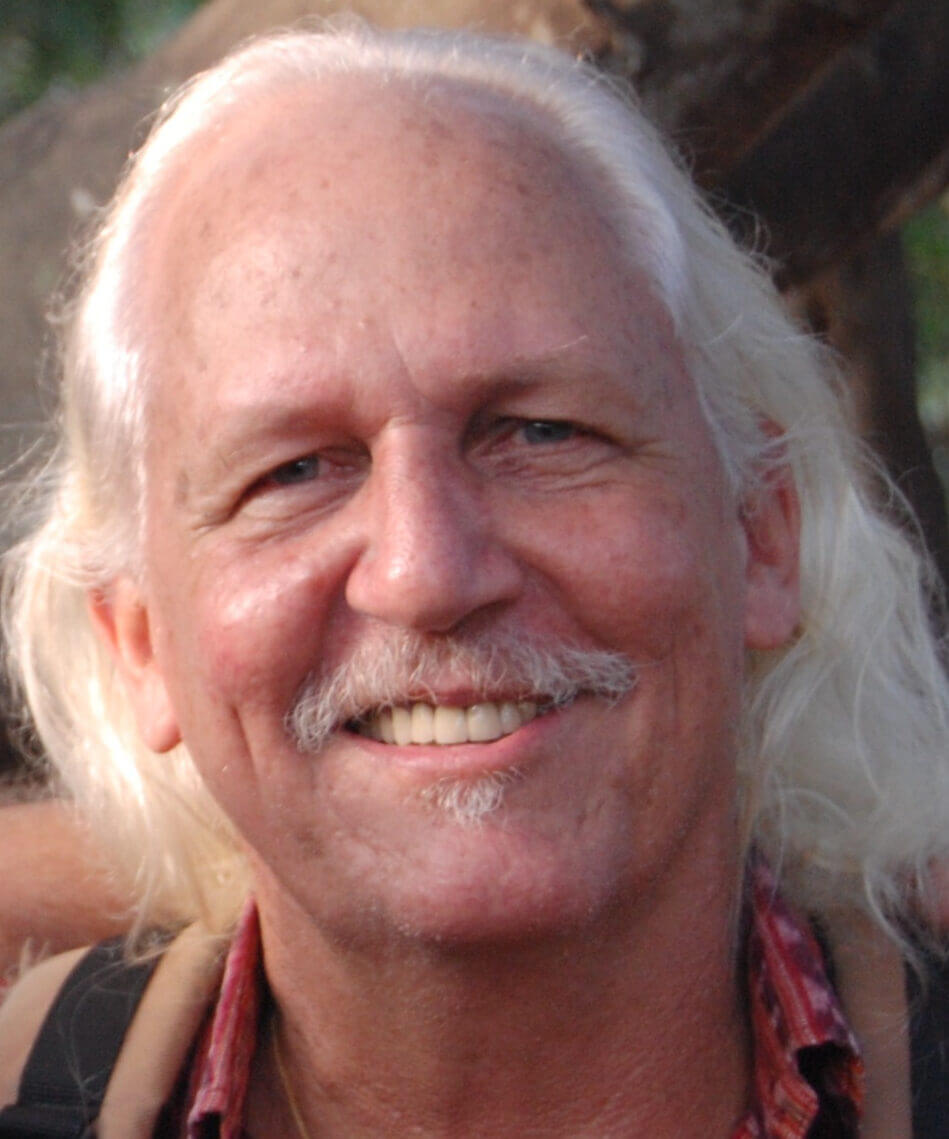
Romulus Whitaker
Conservation and India Advisor

Romulus Whitaker
Conservation and India Advisor
Day Job:
Field Herpetologist, GSI India Project Manager
Bio:
Having been smitten by their beauty and mystery, I’ve been a proselytizer of the goodness of snakes and always defensive about the bad rap they get since I was 4 years old. But then I moved to India where venomous snakes bite and kill tens of thousands of people. How do you deal with that? I’ve lived most of my 80 years in rural India where the deadly bites happen, and I couldn’t just stand by and watch.
In 1969 my colleagues and I set up Madras Snake Park, India’s first place people could see and learn about snakes. In 1978 we helped the Irula tribal snake catchers set up their Cooperative Society to produce venom for the manufacture of millions of vials of antivenom, the only cure for snakebite. We wrote articles and books about snakes, and followed this up with making documentary films, dubbed into regional languages to educate people about snakes and how to avoid getting bitten. For the past 6 years our Madras Crocodile Bank and Centre for Herpetology has an ongoing Snakebite Mitigation Project, with collaborative partners around the country and supported by stakeholders around the globe.
But is this enough? Most definitely not! Over 50,000 of India’s rural men, women and children, primarily farmers and their families, are killed by snakes each year and tens of thousands more grievously injured and traumatized by snakebite. It’s vital to get State Governments and the Government of India to tackle the snakebite issue with great seriousness. Snakebites are preventable accidents and treatable medical emergencies and we now know exactly what to do to reduce the terrible burden of snakebite in rural India. But until the government starts in a big way to do what we and our collaborators in the NGO sector are doing in a small way, the tragedy will continue.

Sanjib Sharma
Clinical and SE Asian Advisor

Sanjib Sharma
Clinical and SE Asian Advisor
Day Job:
Professor Internal Medicine, BP Koirala Institute of Health Sciences (Dharan, Nepal)
Bio:
Sanjib Kumar Sharma (MBBS, MD, DM, FRCP, FISN, FACC) is Rector at the BP Koirala Institute of Health Sciences, Dharan, Nepal and is Professor of Internal Medicine. Prof. Sharma worked as experts in Guideline and Roadmap committees for snakebite, and worked for Nepal Government. He has experience of > 20 years in snakebite management and research and published in international journal. He also helped establish a snakebite treatment center in Nepal managed by paramedics and trained medical doctors and paramedics for snakebite management for many years. He is involved in number of international research projects, collaborations and partnerships including international registries, epidemiological studies, diagnostic studies, health system research, and clinical trials. Sanjib is a foundation director of GSI (Australia).
Why I got into Snakebite: “Snakebite is a tragedy, something I had not encountered in medical school, affecting the underprivileged rural population that cities and policy leaders were unaware of. It can be handled with great success, and I came to the realization that I might be the ‘voice of the voiceless’. ”
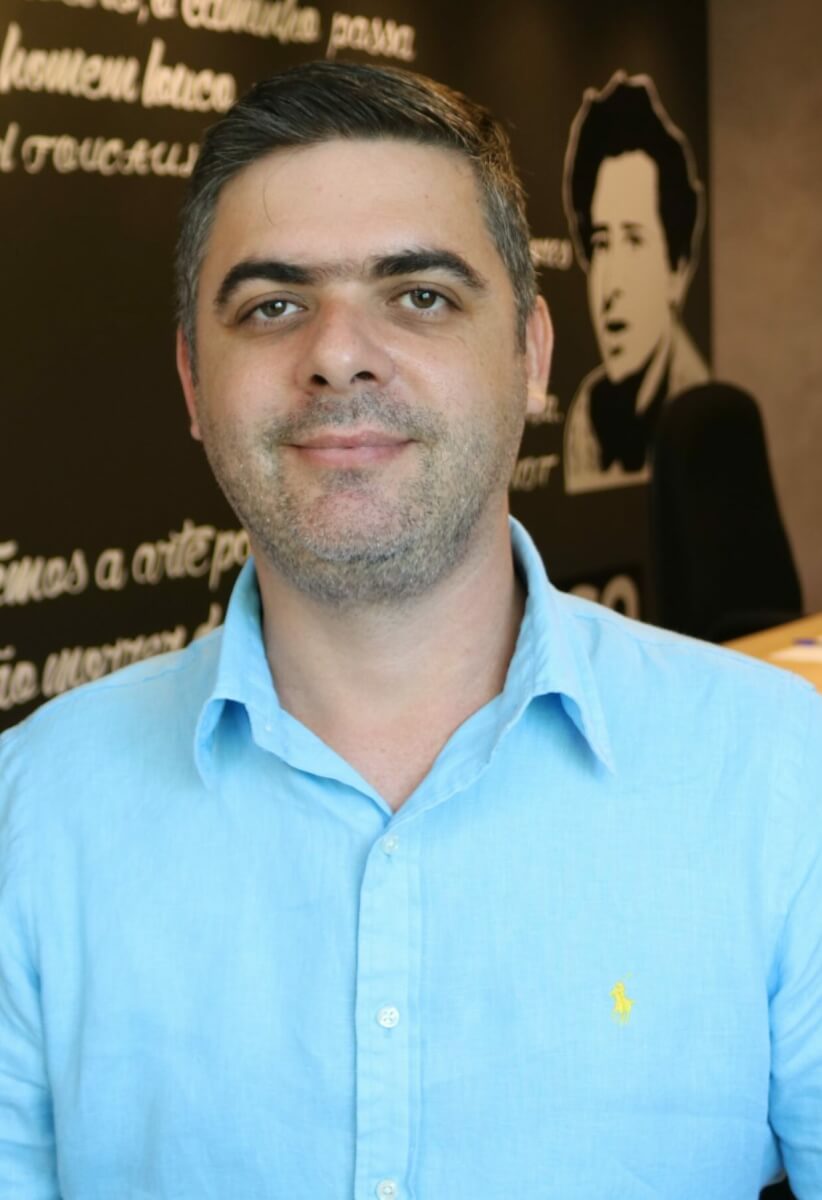
Wuelton M. Monteiro
Clinical and Latin America Advisor

Wuelton M. Monteiro
Clinical and Latin America Advisor
Day Job:
Director of Research, Foundation of Tropical Medicine (Manaus, Brazil)
Bio:
Born in Paraná State, Southern Brazil. In 2004, he earned his bachelor’s degree in Pharmaceutical Sciences at the Maringá State University. He received his MSc degree in Biological Sciences from this university in 2006. In 2011, he obtained his PhD degree in Tropical Diseases from the Amazonas State University at Manaus. In 2008, he moved to the Fundação de Medicina Tropical Dr. Heitor Vieira Dourado (FMT-HVD), in Manaus, where held positions as a researcher. In 2011 he held a joint appointment between FMT-HVD and the Amazonas State University, as an Adjunct Professor of Epidemiology. He has experience in the area of the epidemiology of neglected parasitic diseases, working mainly in malaria and snakebites. Since 2013, he has been dedicated more specifically to the study of the epidemiology, physiopathology and clinical aspects of snakebites in the Amazon. Director of Research of the FMT-HVD, since 2017.
Why I got into Snakebite: “"Visiting communities and speaking with professionals working in health facilities in remote areas of the Amazon, we hear many stories of severe cases and deaths from snakebites. This must occur in poor regions all around the world. Snakebites are very common, but underreported. Our mission as researchers must be to unravel their burden and produce evidence for their control and treatment, and, even more, help to prevent these people from dying early from an avoidable problem and make their lives happier and more productive."”
Will You Band Together with GSI?
We are in need of a committed team of champions to alleviate this unspeakable suffering. Will you band together with GSI-USA’s global network of experts by becoming a GSI-USA Champion today? Your investment in our programs will save lives and limbs, and can change the trajectories of entire families and communities.


